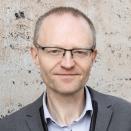International Expert Conference at the DGAP on Russian and EU policy in the post-Soviet space
Russia’s foreign policy interest
For Igor Torbakov of the University of Uppsala, Russia does not have a foreign policy strategy. In his opinion, foreign policy is mainly used by the Russian leadership as an instrument to legitimize domestic policy.
Improving the country’s economic situation is Russia’s central strategic interest according to Vladislav Inozemtsev of the Moscow Research Centre for Post-Industrial Studies. One of the country’s main challenges is stopping the brain drain of skilled labor. Furthermore, the Russian energy market has to be internationalized. For Inozemtsev, the Eurasian Union and the Customs Union have no economic benefit for Russia.
Stefan Meister of the DGAP argued that it makes more sense to assess the Russian integration policy in the post-Soviet space as a political and, to a lesser degree, an economic project. But the question remains whether Russia has the necessary political and material resources to integrate these countries.
Russia and the post-Soviet states
Countries like Belarus, Ukraine, and Moldova have no interest in returning to Russia’s sphere of influence, according to Arkadij Moshes of the Finnish Institute for International Relations. Despite developing very different relations with Russia since the end of the Soviet Union, all three states have conflicts with Russia. This is due to the fact that they all seek to establish independence from Moscow.
Along these lines, Chatham House’s Alex Nice pointed to Belarusian president Alexander Lukascheko’s policy of focusing on protecting his political power in a state independent of Russia. Despite Belarus’ strong economic dependence on Russia, Moscow only has limited influence on Belarusian domestic policy.
Dmitrij Suslov of the Higher School of Economics in Moscow disagrees, as he sees the Customs Union creating a new reality in the post-Soviet space despite its slow development. This could lead to limited integration and a loss of sovereignty for participating states.
Conflict and Cooperation between the EU and Russia
An important topic for the EU-Russian agenda is the ethnic and territorial conflicts in the post-Soviet region. Dmitrij Suslov noted that the number of security-political activities has increased in the last few years, but without any tangible success.
Russian actions during these conflicts have sought to secure its position as a hegemon in the post-Soviet region, but not to solve the conflicts. Suslov pointed out that the preservation of the status quo is the best option for Russia, as every change will result in a loss of influence.
The European Union lacks the political will to integrate the post-Soviet countries. But as Derek Averre of the University of Birmingham made clear, Russian policy in the region is rather reactive and not goal-oriented. Neither the EU nor Russia has a coherent concept for integrating the common neighborhood.
For Andery Makarychev, Humboldt Fellow at the Free University, Berlin and visiting fellow at the DGAP, Russian policy lacks above all functioning institutions and a long-term strategy.
The international expert conference at the DGAP was organized by the Center of Central and Eastern Europe of the Robert Bosch Stiftung at the DGAP with support from the Fritz Thyssen Foundation. The conference was part of the project “Leaving polarization behind? The EU and Russia in the post-Soviet space.”
